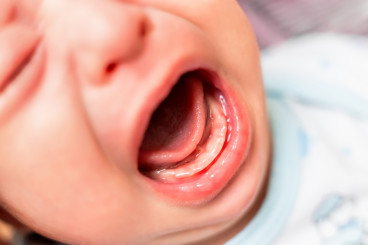Periapical Cyst
A periapical cyst, also known as a radicular cyst, is a type of odontogenic cyst that develops at the apex (tip) of a tooth's root. This cyst forms as a result of inflammation and infection within the pulp of a tooth, typically stemming from untreated or improperly treated dental conditions.
Understanding the Periapical Cyst
Periapical cysts are relatively common, affecting approximately 7-54% of all teeth. They are classified as a type of inflammatory cyst, meaning they arise due to an inflammatory response within the oral cavity. In the case of a periapical cyst, the inflammation is centered around the root tip of a tooth.
The development of a periapical cyst begins with a bacterial infection or trauma to the tooth's pulp, the innermost layer of the tooth that contains blood vessels and nerves. This infection can lead to the formation of a periapical granuloma, a small mass of inflamed tissue at the root tip. Over time, the granuloma may evolve into a fluid-filled sac, known as a periapical cyst.
Symptoms and Diagnosis
Periapical cysts often do not present with any obvious symptoms in their early stages. As the cyst grows, however, it may begin to cause various dental issues, such as:
Persistent or intermittent pain in the affected tooth
Swelling of the gum tissue around the tooth
Redness or tenderness of the gum
Loosening of the affected tooth
Difficulty chewing on the affected side
In some cases, the cyst may become large enough to be visible on the gum or cause bulging of the bone surrounding the tooth.
Diagnosis of a periapical cyst typically involves a combination of clinical examination and radiographic imaging, such as x-rays or cone-beam computed tomography (CBCT) scans. These imaging techniques allow the dentist to assess the size, location, and extent of the cyst, as well as its relationship to surrounding anatomical structures.
Treatment Options
The primary goal in treating a periapical cyst is to address the underlying cause of the inflammation and prevent further progression of the cyst. The specific treatment approach will depend on the size and location of the cyst, as well as the overall health and condition of the affected tooth.
Root canal therapy: In many cases, the initial treatment for a periapical cyst involves root canal therapy, which involves the removal of the infected or inflamed pulp tissue from the tooth's interior. This procedure helps to eliminate the source of the inflammation and can promote the healing of the cyst.
Cyst removal (enucleation): If the periapical cyst is large or persists despite root canal therapy, the dentist may recommend the surgical removal of the cyst, a procedure known as enucleation. This involves the complete excision of the cystic lining to prevent recurrence.
Tooth extraction: In some instances, the affected tooth may be too severely damaged or the cyst may be too large to be effectively treated with root canal therapy or cyst removal. In these cases, the tooth may need to be extracted, and the cyst will be removed along with the tooth.
Preventing Periapical Cysts
The best way to prevent the development of a periapical cyst is to maintain good oral hygiene and seek prompt treatment for any dental issues that may arise. This includes:
Practicing regular brushing and flossing to remove plaque and prevent the buildup of bacteria
Scheduling regular dental check-ups and cleanings
Addressing any signs of tooth decay or pulp inflammation, such as pain or sensitivity, in a timely manner
By taking these proactive steps, individuals can significantly reduce their risk of developing a periapical cyst and the associated dental complications.
Conclusion
Periapical cysts are a common type of odontogenic cyst that can arise due to untreated or improperly treated dental conditions. While they may not always present with obvious symptoms, these cysts can lead to significant dental problems if left unaddressed. By understanding the causes, symptoms, and treatment options for periapical cysts, individuals can work closely with their dentists to maintain good oral health and prevent the development of these types of cystic lesions. Dr. BestPrice: Get the best dental care for your periapical cyst.



